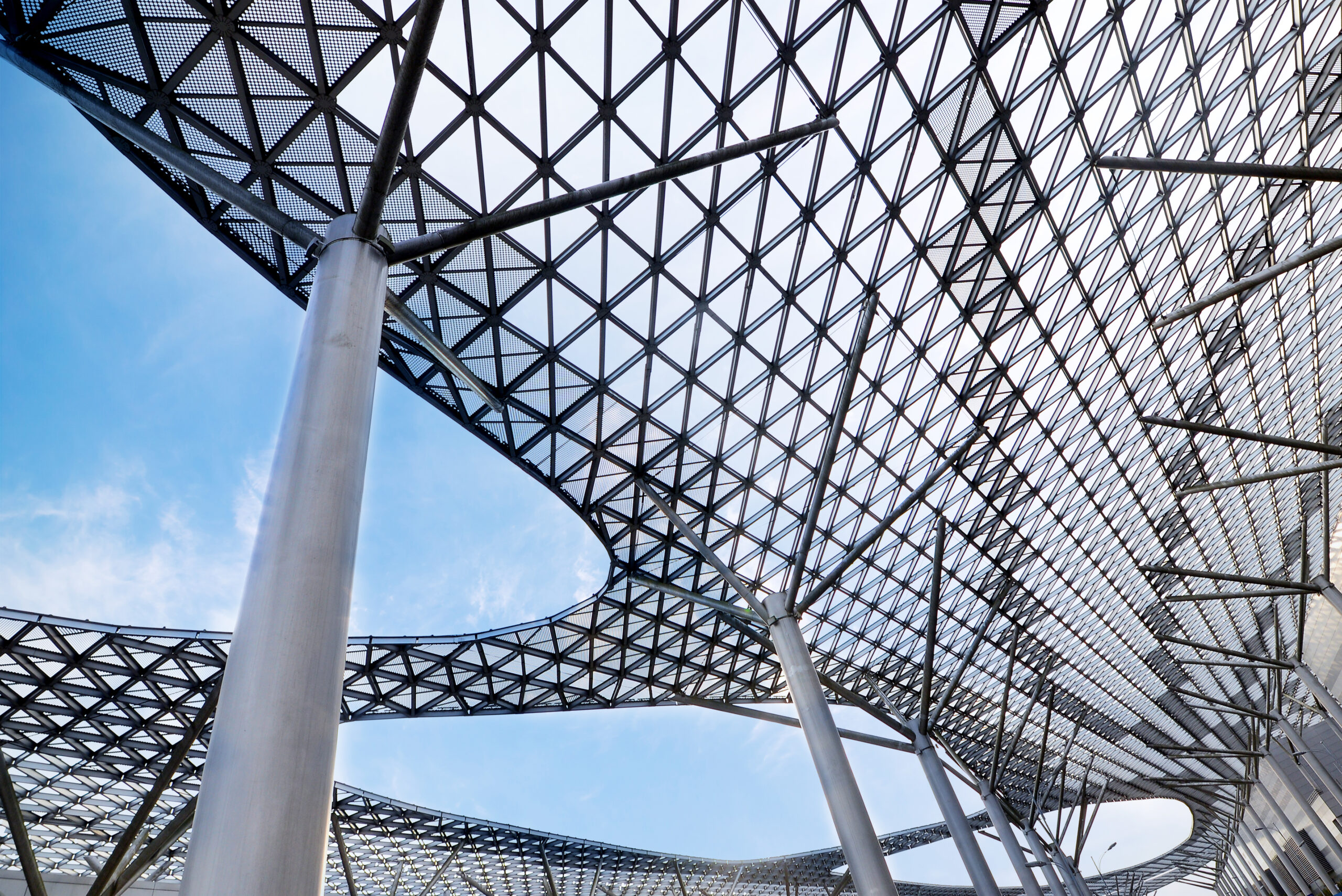
-
By pzvar
-
September 12, 2025
- 0 Comment
EN 1090 Certification – Execution of Steel and Aluminium Structures
EN 1090 Certification – Introduction
As a Notified Body recognized by the European Commission, we provide EN 1090 certification to manufacturers, fabricators, and suppliers of structural steel and aluminum components. EN 1090 ensures that construction products meet essential safety, quality, and performance requirements under the Construction Products Regulation (CPR).
Compliance with EN 1090 demonstrates that organizations implement reliable Factory Production Control (FPC) systems, follow standardized fabrication processes, and produce structural components that meet European and international construction standards. EN 1090-1 and EN 1090-2 specifically focus on ensuring the conformity of structural steel and aluminum elements, from design to fabrication and assembly.
What is EN 1090 Certification?
EN 1090 certification is a harmonized European standard that specifies requirements for the execution of steel and aluminium structures. Since July 2014, it has been mandatory for manufacturers to obtain this certification if they wish to CE mark their products and legally sell them in the EU. The standard is grouped into three parts:
- EN 1090-1: Requirements for conformity assessment and CE-marking.
- EN 1090-2: Technical requirements for steel structures.
- EN 1090-3: Technical requirements for aluminium structures.
Benefits of Getting EN 1090 Certification
- Risk Management – Certification greatly reduces the possibility of structural failures, ensuring that every component is built and tested for maximum safety, lowering liability risks on every project.
- Customer Satisfaction – Being EN 1090 certified shows clients and partners that your products meet strict quality control requirements, resulting in stronger customer trust and satisfaction.
- Better Quality Control – EN 1090 certification enforces rigorous quality management throughout production, from initial design to the finished product, driving continuous process improvement and product excellence.
- Compliance and Commitment to Excellence – Certification provides proof of compliance with the latest European regulations, expanding access to new markets and opportunities, and showcasing your organization’s commitment to world-class standards.
Levels of EN 1090 Certification
There are four execution classes within EN 1090 certification, ranging in complexity and stringency:
- EXC1: Simple agricultural buildings, stairs, small residential railings.
- EXC2: Most common; for structural components in typical buildings (multi-storey, commercial, etc.).
- EXC3: Large scale structures, stadiums, bridges.
- EXC4: High-risk, critical infrastructure such as major bridges or nuclear facility structures. The higher the execution class, the more demanding the requirements for process control and documentation.
Who Needs EN 1090 Certification?
- Manufacturers and fabricators of steel or aluminium structural components intended for permanent installation in the EU.
- Contractors and suppliers involved in civil engineering or construction projects using structural steel or aluminium.
- Any company that wishes to place the CE mark on their steel or aluminium construction products for the European market.
- Exporters of steel and aluminium structural products or assemblies to EU countries, as non-compliance can be market entry.
How to Get EN 1090 Certified?
As a certification body, we conduct the following steps:
1. Application & Document Review:
Examination of structural design documentation, welding procedures, fabrication processes, inspection plans, and qualifications of personnel involved in structural steel and aluminum manufacturing.
2. Assessment and Audit:
Accredited auditors perform on-site inspections to verify compliance with EN 1090-1 and EN 1090-2 requirements, including Factory Production Control (FPC) procedures.
3. Testing & Verification:
Verification of structural components through destructive and non-destructive testing (NDT), welding inspections, and material conformity checks.
4. Quality Management System (QMS) Verification:
Assessment to confirm that the organization has implemented a Factory Production Control (FPC) system and quality management practices aligned with EN 1090 standards, ensuring consistent production of safe, high-quality structural components.
Why Choose Us for EN 1090 Certification?
Accredited Authority – Our EN 1090 certificates are issued under internationally recognized accreditation.
Expert Auditors – Skilled assessors with in-depth knowledge of structural steel and aluminum requirements.
Market Acceptance – Certification widely recognized by contractors, clients, and regulatory bodies across Europe and beyond.
Neutral & Independent – Certification delivered with impartiality, professionalism, and integrity.
Conclusion
EN 1090 certification is not only a legal requirement for structural steel and aluminum manufacturers in Europe—it is also a globally recognized mark of quality, safety, and compliance.
As a trusted certification body, we provide impartial auditing and certification services to help manufacturers, fabricators, and suppliers demonstrate conformity with the Construction Products Regulation (CPR), gain customer confidence, and access opportunities in international construction markets.
Contact us today to begin your EN 1090 certification process and showcase your compliance with European structural steel and aluminum standards.
